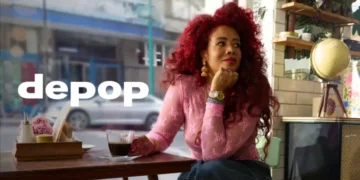After a period of starts and stops earlier in the pandemic, travel is firmly back on the upswing — so much so that soaring demand continues to create an ugly collision with supply and labor shortages. Despite months of airport chaos, hospitality marketers are taking advantage of the rebound with some of their most ambitious campaigns since pre-COVID days, representing a bid by legacy brands to recapture mojo that was lost amid the emergence of home-sharing sites like Airbnb.
A surge in momentum for travel and hospitality has been forceful enough to offset advertising pullbacks elsewhere. Travel marketers expect to spend 27% more on media in the year’s second half than initially anticipated, according to a recent survey by the Interactive Advertising Bureau, indicating the boom is primed to last past the typically busy summer period. The rosy outlook contrasts with categories like automotive and health and wellness that have lowered their forecasts.
“Travel, which had not been up, is one of the categories that’s still up,” said Robert Silver, executive vice president of media at Razorfish. “There’s a lot of competition and investment certainly coming into the marketplace.”
One doesn’t need to look far to see the brand dollars in action. Hilton in July unveiled its first global brand platform with a campaign playing up the perks of booking at a hotel versus the alternatives. Ads, which were developed with mainstay partner TBWAChiatDay New York, star heiress Paris Hilton touting features like confirmed connected rooms and pet-friendly accommodations in her typically maximalist fashion. The ritzy angle could resonate despite inflation and recessionary fears, which have yet to push otherwise trepidatious consumers to trade down on their vacation plans.
https://www.youtube.com/watch?v=8hpSSmyGVUM
“If the economy comes to a screeching halt, it’ll be interesting to see how brands react and move more toward value and price messaging,” said Silver. “But there continues to be such strong leisure demand, I think we’re a little bit a ways away from that.”
Other chains are similarly playing up the pampered lifestyle. IHG Hotel & Resorts, which owns brands at a range of price points such as InterContinental, Kimpton and Holiday Inn, earlier this month launched its most expensive paid media effort in a decade. “Guest How You Guest” depicts people relaxing poolside and enjoying treats in bed, while heavily promoting IHG’s newly streamlined rewards program. The multimillion campaign represents the heaviest investment IHG has put behind loyalty to date.
https://www.youtube.com/watch?v=uPA2pZe83wk
“Where we are in this cycle, it’s time to start to differentiate brands from one another and from themselves within a portfolio,” said Silver. “That’s why I think you’re seeing more featured benefits messages.”
Riding the tailwinds
The scale of hospitality campaigns in many cases outmatches that which was present prior to the pandemic. With activity resuming, marketers have switched up their media mix as well, placing a bigger focus on brand-building initiatives in an industry that’s otherwise skewed toward performance channels of late.
“There are bigger TV budgets, so we’re seeing the reemergence of that messaging that probably always had been in digital at some level, come back into more linear and broadcast mass media communications,” Silver said.
At the same time, more dollars are flowing toward addressable and programmatic media. Marriott, which kicked off its largest campaign ever last summer, worked with Pinterest on digital out-of-home ads displaying travel data and a QR code that opened a quiz on the social discovery app when scanned. The campaign additionally features a heavy push around connected TV and apps like TikTok and Twitch. Gaming has become a more substantial part of the brand’s outreach in markets like Asia as well to promote its Bonvoy loyalty platform.
“[Hospitality marketers are] really trying to connect in ways that maybe we couldn’t pre-pandemic using upper-funnel tactics, if you will, with lower-funnel outcomes, and being more thoughtful about how that experience is connected end-to-end for the consumer,” said Silver.
Newfound strengths for hospitality’s old guard could help it regain ground from rivals like Airbnb and Vrbo. While digital upstarts have also felt the windfall from so-called “revenge travel,” some of their key points of differentiation — including around price — aren’t as firm as they once were, and might be even less so in the case of a recession. That said, hotel brands are unlikely to fall back to purely value-driven positions in the same manner they did back in 2008, per Silver.
“We’re not seeing that sort of push of a rate-based, value-based play,” said Silver. “Sure, there are rates in there, but it’s not screaming 20% off or any sort of discount. It’s differentiating more on product than it is on price.”
Read the full article here














